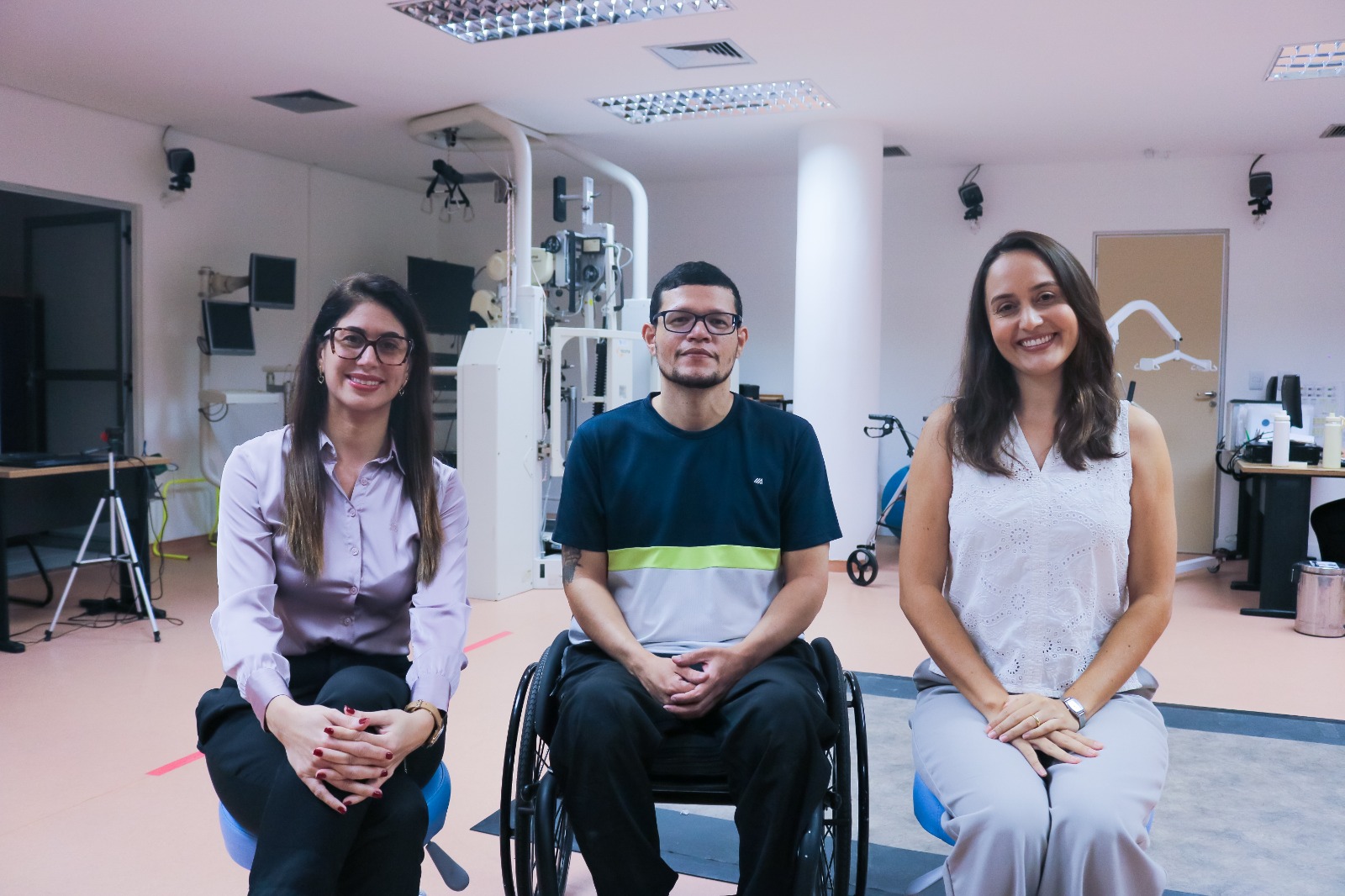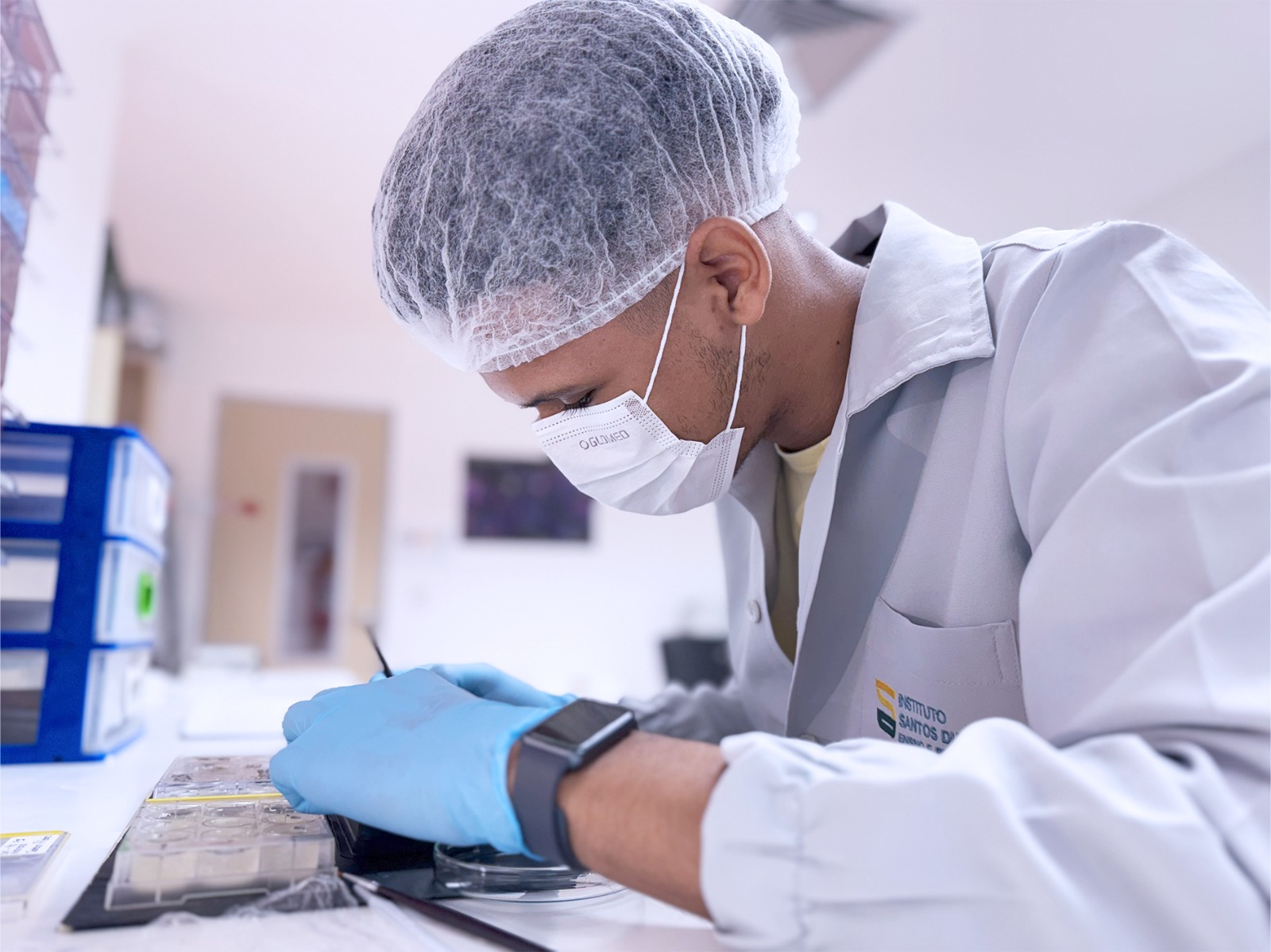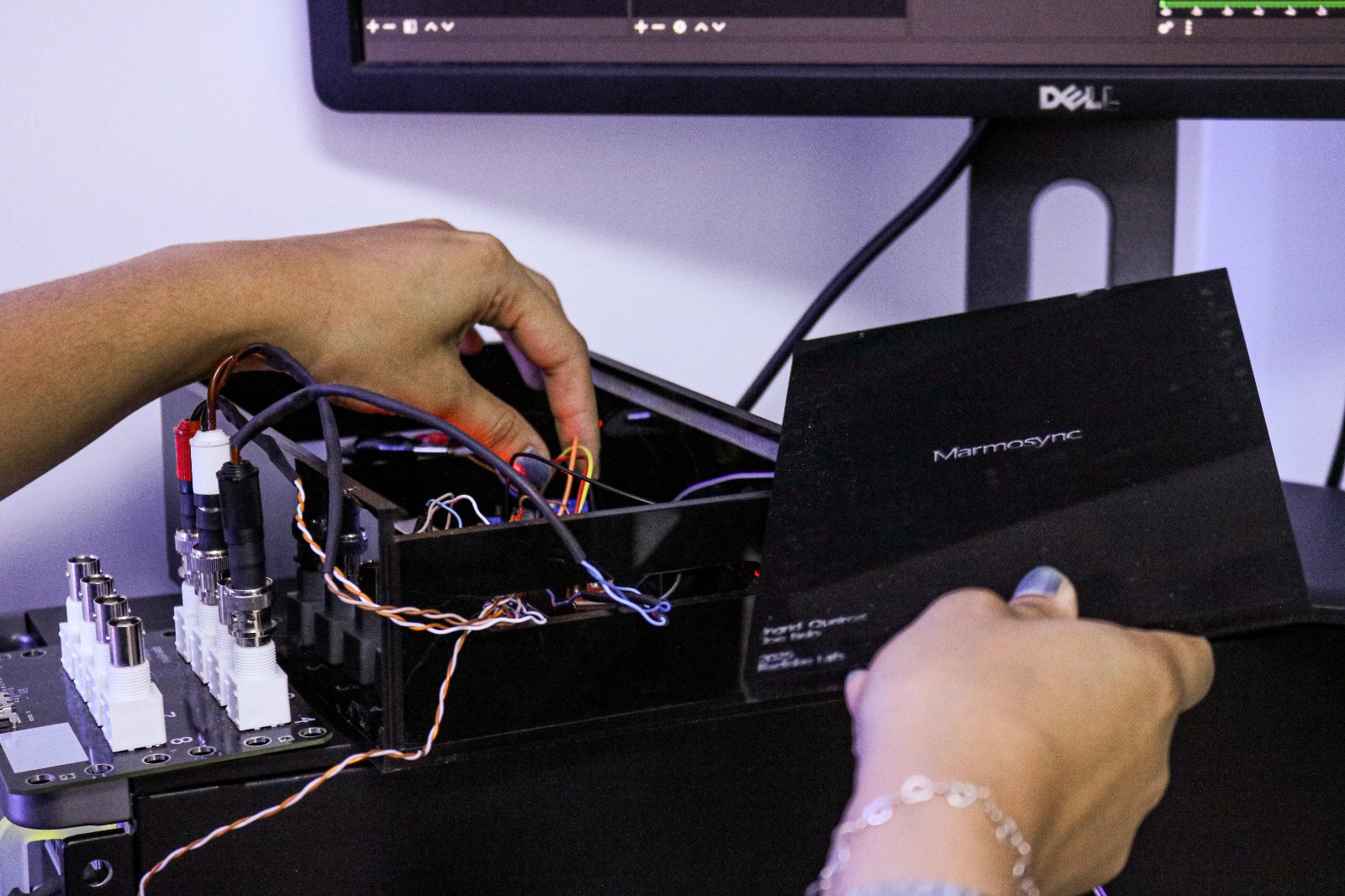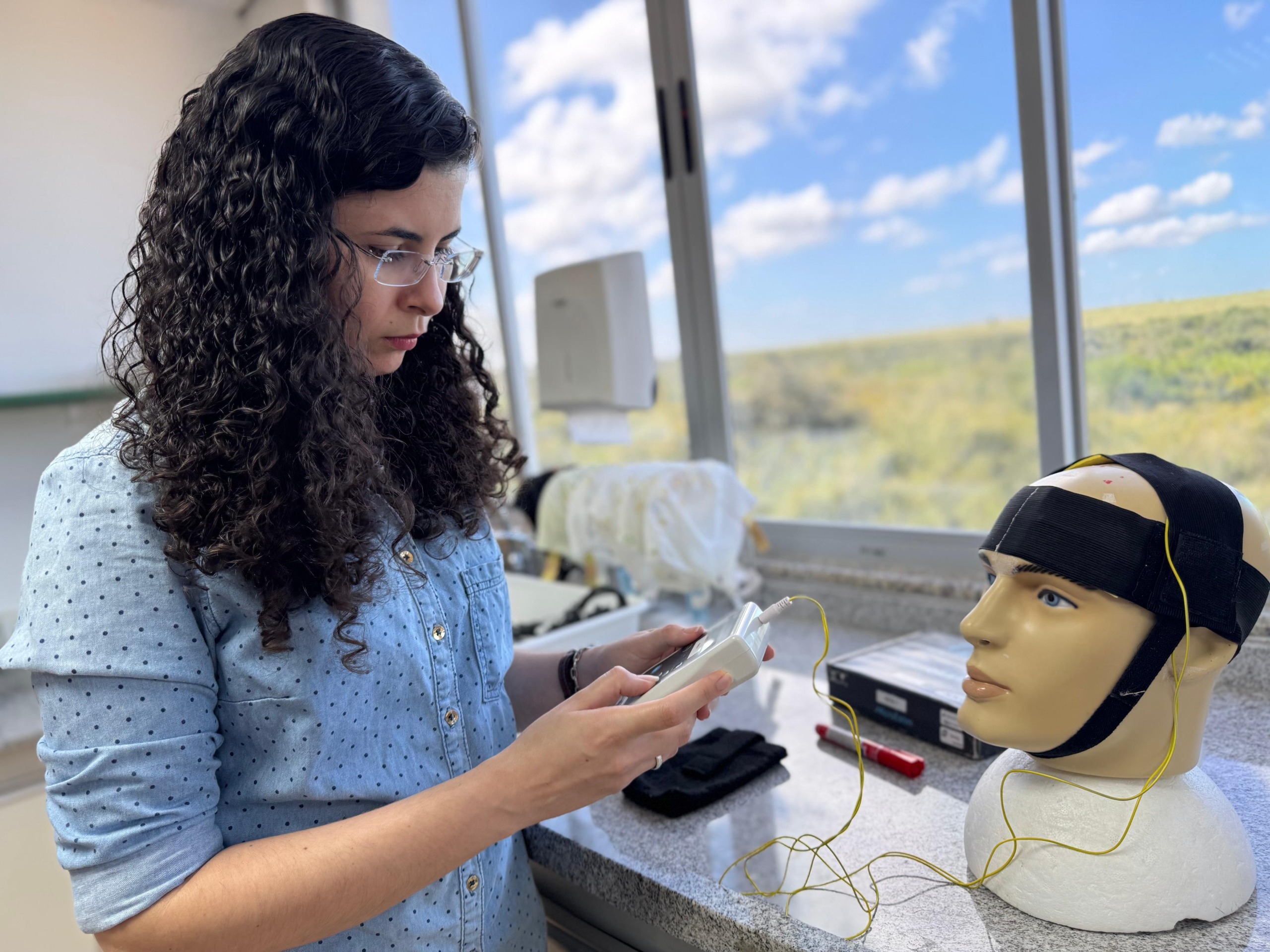In 2014, still during the preparatory course for the entrance exam, Mouhamed Zorkot had a clear objective: he wanted to make an impact on people's lives through the health sector. Still not knowing exactly what paths he could take to achieve this goal, he was introduced by a professor to the project 'Walk Again', led by neuroscientist Miguel Nicolelis. Seeing scientists from all over the world combining knowledge to try to get patients with spinal cord injuries to walk again, the student saw that this was the direction he would like to follow. “I entered mechanical engineering with the aim of pursuing a master’s degree in neuroengineering”, says Mouhamed.
Eight years later, after being awarded a Master's degree in Neuroengineering by the Santos Dumont Institute (ISD), founded by Miguel Nicolelis in the rural area of Macaíba, in Rio Grande do Norte, the mechanical engineer born in Abidjan, on the Ivory Coast, will have the opportunity to work side by side with some of the most prominent names in his field, at the École Polytechnique Fédérale de Lausanne (EPFL), in Switzerland, where he was approved to pursue a PhD, and obtained an excellence scholarship from the Swiss government.
“EPFL has always been a place that researchers wanted to visit, as they are a world reference in my field. The expectation is very high to get there and learn the best”, emphasizes Zorkot. He will pursue a doctorate in the area of Robotics, Control and Intelligent Systems, under the guidance of researchers Mohamed Bouri, Silvestro Micera and Solaiman Shokur.
During the four-year period, it will investigate and implement gait rehabilitation strategies for incomplete spinal cord injury, which combine powered exoskeletons of the lower limbs and non-invasive electrical stimulation. The project is a continuation of what Mouhamed started in his master's degree: the construction of an exoskeleton for the rehabilitation of the lower limbs of people who have had a stroke, considered one of the highlighted projects by the Global Grad Show, an initiative of the Art Dubai Group to foster innovative ideas in the world of research around the world.
Mouhamed is one of many with degrees in Neuroengineering from ISD, which hosts the only postgraduate program recognized by the Ministry of Education (MEC) in this area in Brazil, which will start working in international laboratories. He joins colleagues also titled between 2021 and 2022, Carolina Karla Evangelista, 24 years old, and Mirella Cunha, 25 years old, who are already in laboratories outside Brazil continuing their doctoral research. “The master’s degree in neuroengineering was a very important part for me to get this approval. There were very strong contributions, from the assistance of the professors, who accompanied me throughout the registration and interview process, to the interdisciplinary work, which allowed me to have contact with physiotherapists, experimental research with patients and various technologies available at the Institute”, says Mouhamed.
New perspectives and knowledge
For biomedical doctor Mirella Cunha Lira, who is currently pursuing her doctorate in the field of Medical Sciences at the Israeli Institute of Technology, in the city of Haifa, Israel, the experience has allowed her to add new perspectives and knowledge to those learned during her master's degree. Guided by professor Ramón Hypolito Lima, Mirella studied the process of memory reconsolidation in the animal model, more specifically, in rodents.
For my doctorate, I had the prospect of being able to continue in the area of neuroscience and cognition. Today, she works on spatial navigation with an animal model, but not with rodents, but quails, guided by professor Yoram Gutfreund. “The fact that I had already worked with animals made it a lot easier, especially in terms of behavior and surgery. It was necessary, of course, to make adjustments, and I am still trying to better integrate the data analysis and engineering aspects, but with a prior perspective”, says Mirella.
She also highlights that it is important that Master's students who are in the process of being selected for PhDs do not become discouraged by initial denials, and continue looking for vacancies in their areas of interest in different locations. “First I tried for a PhD abroad, in Japan, and it didn’t work out. But I kept trying for all the places that interested me. I started looking at the websites of neuroscience associations and, every vacancy that interested me, I sent an email, until I ended up here, where my interests matched with a good educational institution, and which would allow me to live with some quality of life. life by having a scholarship”, he states.
Master's degree contributes to international experience
Living in Germany since January 2022, speech therapist Carolina Evangelista, aged 24, defended her Master's thesis in Neuroengineering in that country, a few days before starting activities at the Leibniz-Institut für Neurobiologie.
Carolina, who worked with audiology on animal models during her master's degree, in order to try to understand the impacts of noise on hearing, states that the ability to manage one's own project throughout the two years of the course was essential for the new stage of life. “My advisor left me free to act and, as a result, I was able to develop responsibility and manage my own project in a more conscious way. Furthermore, the experience with electrophysiology recordings helped me a lot here”, highlights Evangelista.
At the Institute of Neurobiology, the speech therapist studies short-term memories and auditory localization in primates. “I think that all this research experience that I'm having here will help me a lot in terms of how to develop an experiment design: how to plan an experiment, the activities... because most of the time, I have to think about it alone and, Only then will I meet with my advisor to adjust the final parts. It is a very important part of research”, explains Carolina, who wants to continue as a researcher in the area of neurosciences since graduation. “The Master’s degree helped me firstly to have the autonomy that I have now. He prepared me for the moment I’m living in”, he adds.
Text: Mariana Ceci / Ascom – ISD
Photograph: assigned
Communication Office
comunicacao@isd.org.br
(84) 99416-1880
Santos Dumont Institute (ISD)
It is a Social Organization linked to the Ministry of Education (MEC) and includes the Edmond and Lily Safra International Institute of Neurosciences and the Anita Garibaldi Health Education and Research Center, both in Macaíba. ISD's mission is to promote education for life, forming citizens through integrated teaching, research and extension actions, in addition to contributing to a fairer and more humane transformation of Brazilian social reality.













